Unsquashable: Trading volleys with Maria Toor Pakay
The sportswoman talks about her journey from the tribal areas to the international courts.
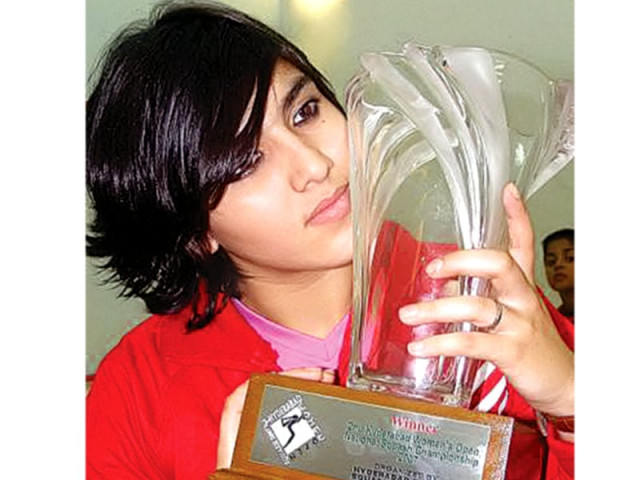
Pakistan’s female squash champion does not come from the squash courts of Karachi, nor did she grow up in the lanes of Lahore. Maria Toor Pakay, Pakistan’s number one female squash player, hails from the strife torn region of South Waziristan.
In 2007, when she was just 16, Pakay was honoured with the President’s Salaam Pakistan Award.
In May 2012, the 21-year-old left-hander became the first Pakistan-born woman to reach a British Open main draw after defeating Emily Whitlock in the qualifying competition and upsetting the seedings.
Pakay then caused a sensation when she clinched the Women’s Squash Association title on 23 September 2012 following a surprise semi-final win over English Lauren Selby in the semi-final of that tournament.
As of September 2012, she is ranked 52nd in the world.
The sportswoman talks about her journey from the tribal areas to the international courts.
On being brought up as a boy
“My sister and I were homeschooled by our father. My mother was a teacher, so her students also used to help us out in a lot of subjects,” says Pakay.
Since her tribal values imposed a regimented code of conduct on women, at the age of 10, Pakay started dressing and acting like a boy. She shaved her head and wore her brother’s clothes so that she could explore the world outside without her gender coming in the way. “My sister and I were the exact opposite. She used to sit at home and be the girly girl and I used to go out and transport water cans with my brother. That way, I saw more than other girls of that time did.”
At the age of 12, after she was introduced to her trainer as ‘Chingez Khan’ by her father, she started weight-lifting. In 2002, she travelled to Lahore with her brother for a weight lifting competition and won — no surprises, knowing our overachiever — the first prize.
On women in the tribal areas
“The conservative parties still resent the empowerment of women but the liberals think it’s our right to be taught how to hold a pen,” says Pakay.
The death of her uncle, Senator Fareedullah Khan in a terrorist attack, made her realise the importance of change and combating militant ideology. In various interviews, she has spoken out about the dearth of rights for women in South Waziristan and the restrictions imposed on them: they are not allowed to get an education, play sports or dress as they please. Pakay believes that the tribal areas need to realise how important sports are for development.
“The conservative parties objected to my growing popularity and even threatened my father, telling him to go back to tableegh and lock me up at home or else they would murder us all,” she says.
Pakay recounts how her father’s growing concern over their security led to her being virtually confined at home for about three years. “I used to play in my room and train myself,” the squash player says. “For a good 9-10 years, I exercised on my own. Many a times, I used to sleep with my legs tied up with dupattas and my arms buried under my body because they would hurt so much.”
Her moments of glory
“I had a historic British opening in May and felt like I fulfilled my father, my mother and my sister’s vision,” says Pakay. “I also got the The Economic Club of Canada’s first annual Voice of Hope Award in October from the Prime Minister’s wife Laureen Ann Harper. Who would’ve thought that a girl from the tribal areas would get all this recognition and love?”
On leaving the country and international squash
Despite her achievements, Pakay found that respect and acknowledgement from her own community was hard to come by. “No one would acknowledge that what my family and I are doing was for the greater good of our community,” she says sadly. She was insulted several times and told that “girls are not our priority”. Realising that her skill would never get the exposure it deserved, Maria flew out of the country to dabble in international sports.
Pakay is loving all the exposure and playing international squash, and says she has never been stereotyped because of her gender. “All my coaches are foreigners but they have never treated me like a stranger. People in South Waziristan have all these misconceptions about people from other religions — Christians, Jews — but they are totally false.” Pakay cites instances where her coaches helped her find the Holy Quran and a mosque, and spared her from strenuous practice so that she could offer her prayers.
On being a role model
“I live up to my family’s values and my friends help me out. I live alone but I don’t go out to party or drink, because I want to set a standard for the girls back home,” says Pakay.
Having struggled in tribal society herself, Pakay feels strongly about women’s rights. “God gives you life just once and you have to justify it. Girls from tribal areas should break the wall of silence and voice their opinions on things that matter. People back home still don’t realise that if you educate a woman, she will educate everyone around her. If you feed her properly, she will feed everyone around her.”
But the 22-year-old has big plans: “Once I come back to my country I will open education institutes and squash training centres for women in the tribal areas,” she says.
Her other loves and future plans
“I love music and want to get a proper degree in it. I have applied to several colleges and universities in the UK,” shares Pakay. The rising squash player says she will keep her focus on squash and learn music in her spare time. “For now I’m training for the World Open on December 13.”
And we’re hoping for another victory for our rising star!
Published in The Express Tribune, Ms T, December 2nd, 2012.
Like MsT on Facebook and follow at @TribmagMsT for your dose of girl talk

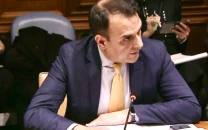
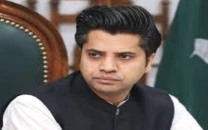
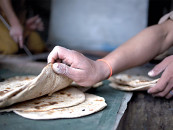
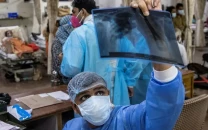
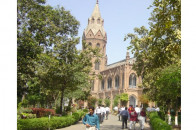
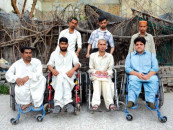







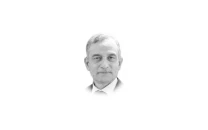




COMMENTS
Comments are moderated and generally will be posted if they are on-topic and not abusive.
For more information, please see our Comments FAQ